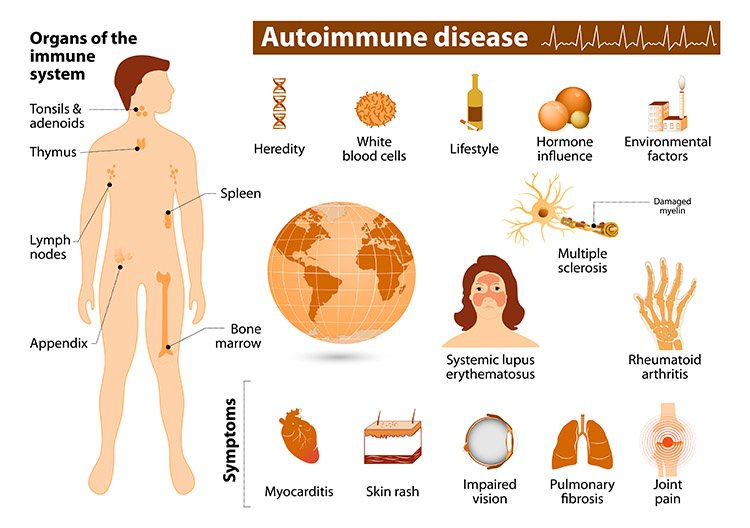
Autoimmune Diseases
Subscribers of "Current Affairs" course can Download Daily Current Affairs in PDF/DOC
Subscribe to Never Miss an Important Update! Assured Discounts on New Products!
Must Join PMF IAS Telegram Channel & PMF IAS History Telegram Channel
- Context (IE): A recent study delves into the connection between autoimmune diseases and X-chromosomes, offering insight into why women are more susceptible to such disorders.
Linkage between X Chromosome and Autoimmune Diseases
- Females have two X chromosomes, while males have one X and one Y.
- The second X chromosome in females contains both active and inactive genes.
- The molecular coating of the X chromosome is a combination of RNA and proteins.
- It is crucial to a process called X chromosome inactivation, which ensures that one set of X chromosomes in females remains active and functional while the other is muffled.
- The chromosome is wrapped in long strands of RNA called XIST that attract proteins and tamp down the expression of the gene inside.
- The ones that escape the X inactivation process are thought to be the cause of autoimmune diseases.
- The XIST molecule, too, has been known to elicit inflammatory immune responses.
Autoimmune Diseases (AD)
- It occurs when the immune system mistakenly targets healthy cells and tissues in the body.
- Examples of AD: Rheumatoid Arthritis, Systemic Lupus Erythematosus, Type 1 Diabetes, Multiple Sclerosis, Celiac Disease, Hashimoto’s Thyroiditis, Psoriasis, and Inflammatory Bowel Disease.
- AD is more common in females, with a female-to-male ratio ranging from 10:1 to 1:1.
- They can occur at any age but are more common during the reproductive years.
- The presence of one AD in an individual increases the risk of developing another AD by 30-40%.
- Symptoms: Fever, malaise, fatigue, arthralgia, deformity, disability, increased risk of comorbidities like cancer, stroke, mental illnesses, infections and risk of early mortality.

Types of Autoimmune Diseases
- Organ-specific disease (involving only one organ) in which the immune response is directed toward antigens present in a single organ.
- E.g. Autoimmune thyroiditis, multiple sclerosis, Diabetes Mellitus Type I, etc.
- Systemic disease in which the immune system attacks self-antigens in several organs.
- E.g. Systemic lupus erythematosus is characterised by inflammation of the skin, mucus membranes, joints, kidneys, brain, intestines, etc.
What causes Autoimmune Diseases?
- Genetics: A family history of autoimmune diseases suggests a genetic predisposition, with specific genes increasing susceptibility to such disorders.
- Environmental Factors:
- Microorganisms (bacteria or viruses) may trigger changes that confuse the immune system.
- Epigenetic factors, which interact with genes, can also play a role.
- Hormonal Influence: Estrogen, a female sex hormone, has an impact on the immune system, and imbalances or inflammation in estrogen levels can heighten the risk of AD in women.
- Medications: Some medications can induce changes in the body that confuse the immune system; for instance, side effects of statins, antibiotics, and blood pressure medications may play a role.





![PMF IAS Environment for UPSC 2022-23 [paperback] PMF IAS [Nov 30, 2021]…](https://pmfias.b-cdn.net/wp-content/uploads/2024/04/pmfiasenvironmentforupsc2022-23paperbackpmfiasnov302021.jpg)











